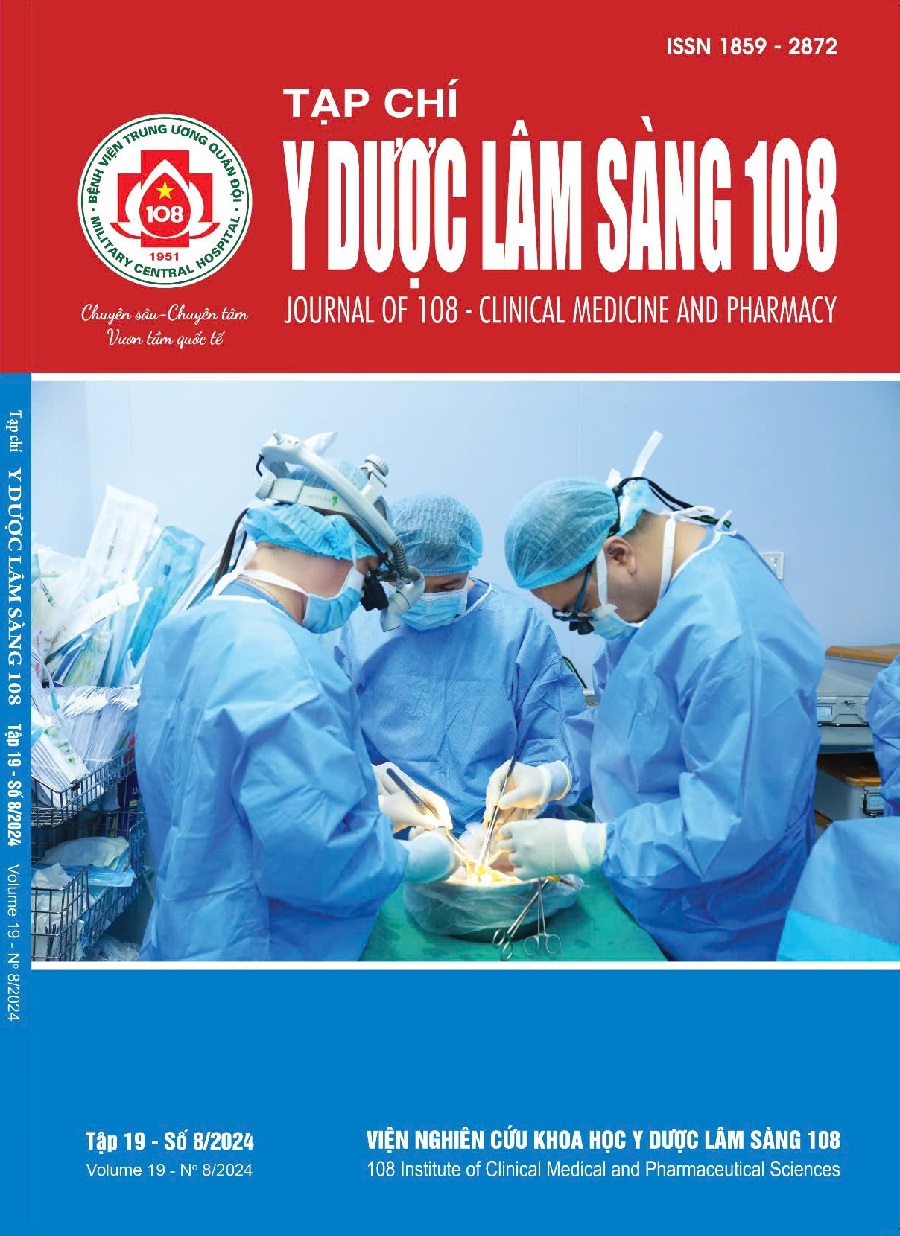Khảo sát thái độ, hành vi của bố mẹ hoặc người chăm sóc trực tiếp trẻ em mắc viêm da cơ địa tại Bệnh viện Nhi đồng 2, TP. Hồ Chí Minh
Main Article Content
Keywords
Tóm tắt
Mục tiêu: Xác định thái độ, hành vi của bố, mẹ, người chăm sóc trực tiếp về bệnh viêm da cơ địa của trẻ và xác định mối liên quan giữa thái độ, hành vi với đặc điểm xã hội học của bố, mẹ, người chăm sóc trực tiếp; với đặc điểm xã hội học và tình trạng bệnh của trẻ. Đối tượng và phương pháp: Nghiên cứu cắt ngang mô tả trên 206 bố/mẹ/người chăm sóc trực tiếp trẻ bị viêm da cơ địa tại Bệnh viện Nhi đồng 2, từ tháng 1/2023 đến tháng 5/2023. Kết quả: Hơn 60% người tham gia có thái độ tích cực về ảnh hưởng của viêm da cơ địa lên học tập, kết bạn. Người tham gia trẻ tuổi hơn thì có thái độ tích cực hơn về ảnh hưởng của bệnh lên học tập (p=0,04), tài chính (p=0,01). Có 64,6% người tham gia dùng dưỡng ẩm cho con. Việc sử dụng dưỡng ẩm có mối liên quan với tuổi khởi phát bệnh (p=0,006) và SCORAD của trẻ (p=0,004). Kết luận: Thái độ, hành vi của bố, mẹ, người chăm sóc có vai trò quan trọng trong kiểm soát bệnh viêm da cơ địa của trẻ.
Article Details
Các tài liệu tham khảo
2. Cork MJ, Britton J, Butler L, et al (2003) Comparison of parent knowledge, therapy utilization and severity of atopic eczema before and after explanation and demonstration of topical therapies by a specialist dermatology nurse. Br J Dermatol 149(3): 582-589.
3. Li Y, Zheng H, Li Y, et al (2020) Parental knowledge of moisturizers and their application to infants with eczema in Hangzhou, China. Medicine (Baltimore) 99(22): e20329.
4. Maksimović N, Janković S, Marinković J et al (2012) Health-related quality of life in patients with atopic dermatitis. J Dermatol 39 (1): 42-47.
5. Reljić V, Gazibara T, Nikolić M, Zarić M, Maksimović N (2017) Parental knowledge, attitude, and behavior toward children with atopic dermatitis. Int J Dermatol 56(3): 314-323.
6. Ricci G, Bendandi B, Pagliara L, et al (2006) Atopic dermatitis in Italian children: evaluation of its economic impact. J Pediatr Health Care 20(5): 311-315.
7. Rodríguez-Orozco AR, Kanán-Cedeño EG, Guillén Martínez E et al (2011) Family functioning and illness perception of parents of children with atopic dermatitis, living without skin symptoms, but with psychosomatic symptoms. Iran J Allergy Asthma Immunol 10(1): 61-65.
8. Roh NK, Han SH, Kim MJ, Park GH, Lew BL, Choi EH, Ko HC, Park YL, Son SW, Seo YJ, Lee YW, Cho SH, Park CW (2016) Awareness of atopic dermatitis and attitudes toward different types of medical institutions for its treatment among adult patients and the parents of pediatric patients: A survey of 500 participants. Ann Dermatol 28(6): 725-732.
9. Sokolova A, Smith SD (2015) Factors contributing to poor treatment outcomes in childhood atopic dermatitis. Australas J Dermatol 56 (4): 252-257.
10. Wollenberg A, Christen‐Zäch S, Taieb A, et al (2020) ETFAD/EADV Eczema task force 2020 position paper on diagnosis and treatment of atopic dermatitis in adults and children. J Eur Acad Dermatol Venereol 34(12): 2717-2744.
 ISSN: 1859 - 2872
ISSN: 1859 - 2872
